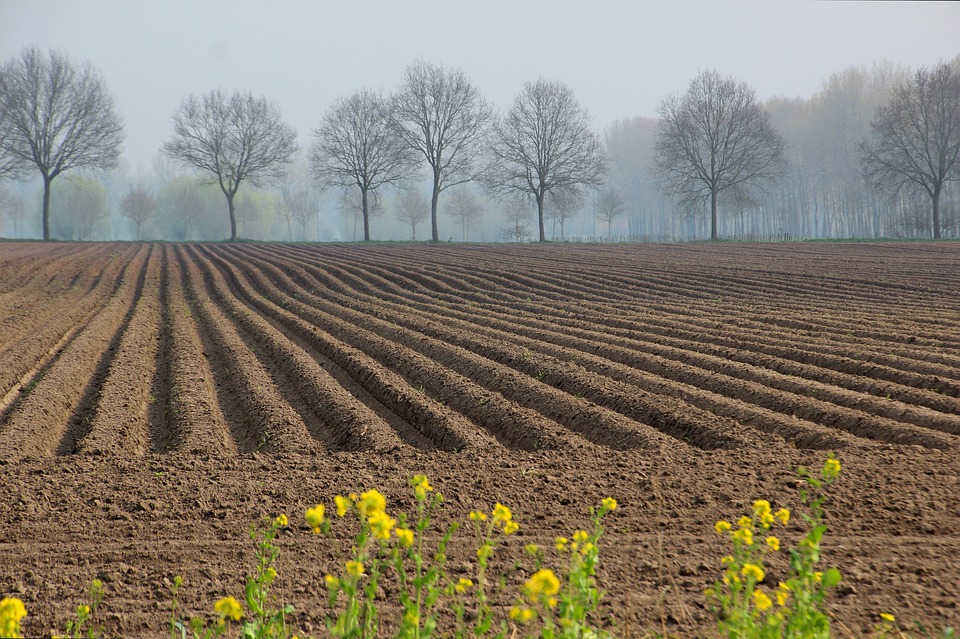WILDERNESSES AND SOLITARY PLACES
I lost my precious mother a few days ago. The ten days leading up to her death were long and draining. I suffered as I watched my mother suffer, as I watched my sisters and brother suffer. We spent most of the time everyday of those ten days together, with hospice nurses and CNAs coming in and out. There was hardly any time to be alone—alone with my thoughts—alone with My Lord.
I thought of this post that I had planned next, WILDERNESSES AND SOLITARY PLACES. I thought of my own times in the wilderness and my own need of that solitary place. When those times of wilderness happen, it's usually pain that leads us there. In our wildernesses, we almost always initially feel abandoned... like God has forsaken us... like He doesn't care. Then, after a while, we begin to realize that He is calling us to a more intimate place with Him. We begin to see that those are the sweetest times with Him... that He, through His Word, is whispering sweet truths and promises to us that penetrate deep into our hearts and will remain there forever. It's in those times when He has our attention, when we are hurting and longing for something, that we realize He is what we are longing for.
It's those times that are preparation for the times when we can't be in that place of solitude and quiet. Preparation for the times that are noisy and chaotic and when our schedules get changed, and demands are put on us. Times when all we can do is trust and abide. That abiding and resting come a little easier when He's had us in the wilderness and taught us there. When He's taken us to the solitary places and given us specific words that never cease to amaze us. He invests in us every time we are alone with Him and in His Word, so that when our lives are commandeered by circumstances, those investments yield returns. He brings to mind the sweet promises He spoke to us. Or, we just see how what we thought was so hard to walk through, was really the most precious time of Him growing us in Him and showing us more of just who He is.
So with that, I leave you with this study.
I thought of this post that I had planned next, WILDERNESSES AND SOLITARY PLACES. I thought of my own times in the wilderness and my own need of that solitary place. When those times of wilderness happen, it's usually pain that leads us there. In our wildernesses, we almost always initially feel abandoned... like God has forsaken us... like He doesn't care. Then, after a while, we begin to realize that He is calling us to a more intimate place with Him. We begin to see that those are the sweetest times with Him... that He, through His Word, is whispering sweet truths and promises to us that penetrate deep into our hearts and will remain there forever. It's in those times when He has our attention, when we are hurting and longing for something, that we realize He is what we are longing for.
It's those times that are preparation for the times when we can't be in that place of solitude and quiet. Preparation for the times that are noisy and chaotic and when our schedules get changed, and demands are put on us. Times when all we can do is trust and abide. That abiding and resting come a little easier when He's had us in the wilderness and taught us there. When He's taken us to the solitary places and given us specific words that never cease to amaze us. He invests in us every time we are alone with Him and in His Word, so that when our lives are commandeered by circumstances, those investments yield returns. He brings to mind the sweet promises He spoke to us. Or, we just see how what we thought was so hard to walk through, was really the most precious time of Him growing us in Him and showing us more of just who He is.
So with that, I leave you with this study.
WILDERNESSES AND SOLITARY PLACES
One could say that the Gospel of Mark could be captured by a single verse: "For even the Son of Man did not come to be served, but to serve and give His life a ransom for many." Mark 10:45
We know that Matthew portrays Jesus as the Messiah and focuses on His Jewishness. Luke, being a gentile himself, focuses on Jesus' humanity and portrays Him as the Son of Man. John portrays Jesus as God, the great I AM.
Mark focuses on Jesus the Suffering Servant, as He ministers to the needs of others to the point of death. He tells His disciples the cost of discipleship in chapter 8: 'When He had called the people to Himself, with His disciples also, He said to them, "Whoever desires to come after me, let him deny himself, and take up his cross and follow Me. For whoever desires to save his life will lose it, but whoever loses his life for My sake and the gospel's sake will save it. For what will it profit a man if he gains the whole world, and loses his own soul? Or what will a man give in exchange for his soul? For whoever is ashamed of Me and My words in this adulterous and sinful generation, of him the Son of Man also will be ashamed when He comes in the glory of His Father with the holy angels." Mark 8: 34-38.
I discovered something interesting when I was reading the first chapter of Mark...

.jpg)



Comments
Post a Comment